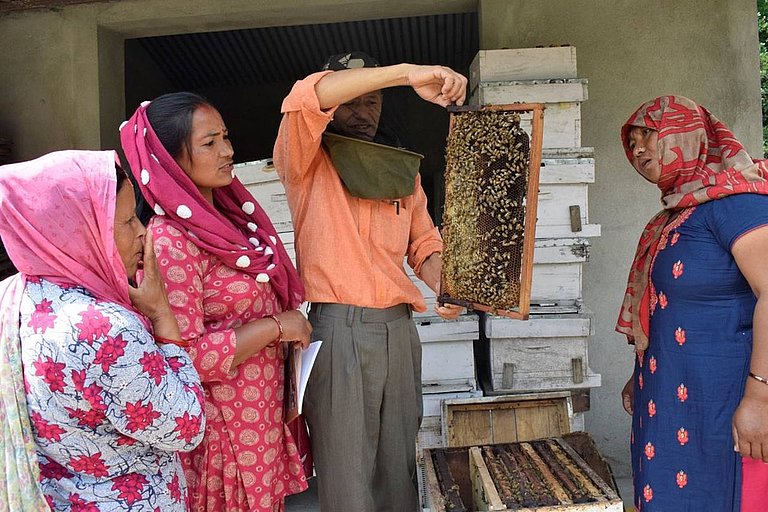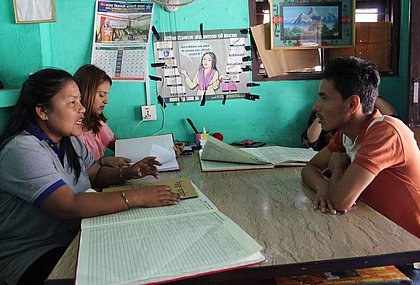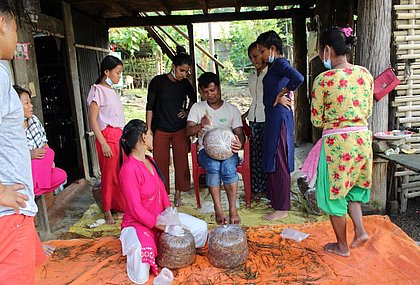Around 500,000 Nepalese travel abroad every year to take up work. The number of unreported cases concerning the number of people crossing the Indian (so-called "green") border is estimated to be much higher. Especially labour migrants from the Far West of Nepal mainly choose to travel to India rather than to Malaysia or the Gulf States. Most of them are low-skilled workers from disadvantaged population groups (e.g. Dalits and Janjati) in the village regions - for them, the journey to India is often the only way to feed their families. Far Western Nepal is one of the poorest and least developed regions of Nepal with the greatest socio-economic problems. According to the "Living Standard Survey 2014", 45% of the population in the Far West live in absolute poverty, compared to a national average of 23%. 70% of all households in this region have at least one migrant worker in the family, 56% of households receive remittances from abroad. Women are particularly vulnerable on the migration routes to India: Discrimination, exploitation and violence are not uncommon. In addition, due to their lack of knowledge, those leaving the country are easy victims of human traffickers. Every year thousands of girls and women are trafficked from Nepal for sex work and forced labour.
Safe migration – an important topic in Doti and Kanchanpur
In Far West Nepal, in the districts Doti and Kanchanpur, we work with our partner organization NEEDS - the only organization in the region working for safe migration. There are also only a few government programmes in Doti and Kanchanpur that are working on these topics. For this reason, NEEDS places particular importance on working closely with local governments in project implementation and to creating a political dialogue on safe migration and human trafficking.
This is how AWO International works with NEEDS
NEEDS has been a project partner of AWO International since 2015 and focuses in the project implementation for the period from 2020 to 2022 on ensuring safe labour migration and preventing human trafficking, starting with educational measures. In schools for instance, at least 600 students are to be educated about safe migration and human trafficking by the end of the project. In addition, a total of four migration information centres will be set up at central locations in the target communities to provide information on the dangers of migration. The awareness raising measures will also be supported by radio broadcasts, local campaigns and the organization of public theatre plays. Ultimately, the project also aims to offer unsuccessful migrants and survivors of human trafficking a perspective for their return home. In vocational training courses, those affected learn to expand their skills in order to generate their own income with their own small business and thus reintegrate themselves both economically and socially. The project also provides those affected with a psychosocial and legal advice centre.
Projectinfo
| Project | Promotion of safe labour migration by capacity building of potential labour migrants in Doti and Kanchanpur Districts |
|---|---|
| Place/Region | Adarsha and Shikhar (Doti District), Krishnapur and Punurbas (Kanchanpur District) |
| Partner | Nepal Environment & Education Development Society (NEEDS) |
| Target group | The direct target group are potentially vulnerable migrants, migrant families and returnees. The members of the supported social structures also belong to the direct target group. The project plans to support Dalit, Janjati and other members of the p |
| Activities |
|
| Duration | 2020 - 2025 |
| Budget | 78.737 Euro per annum |
| Sponsor | BMZ (Federal Ministry for Economic Cooperation and Development) |


